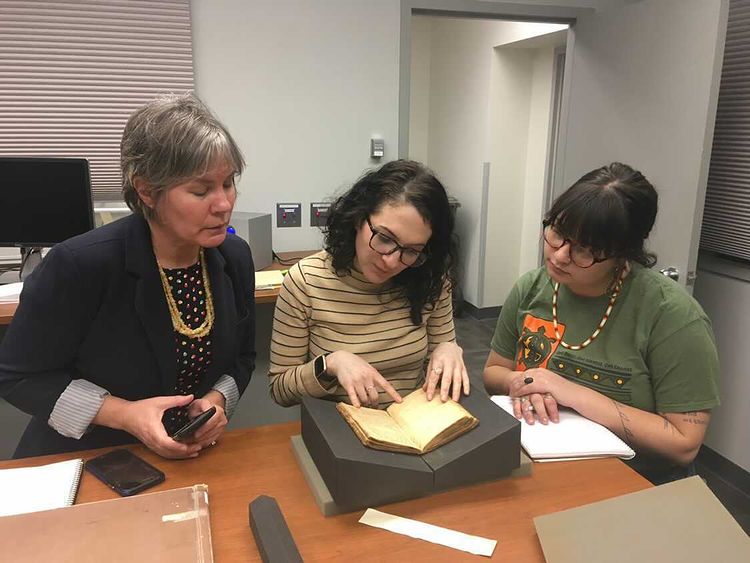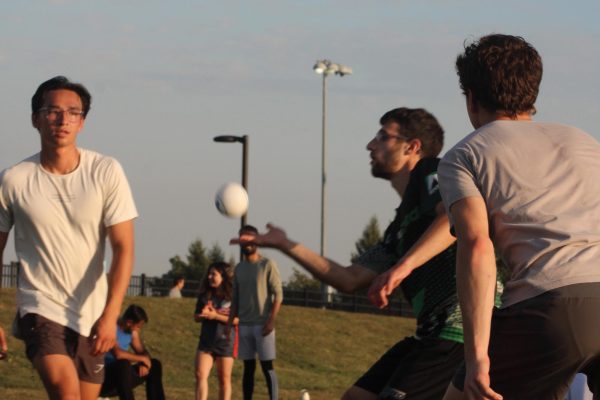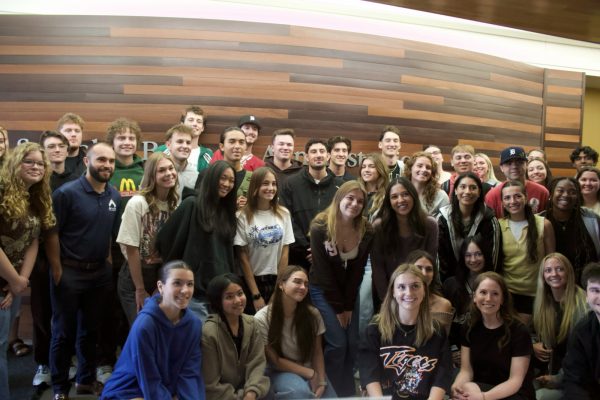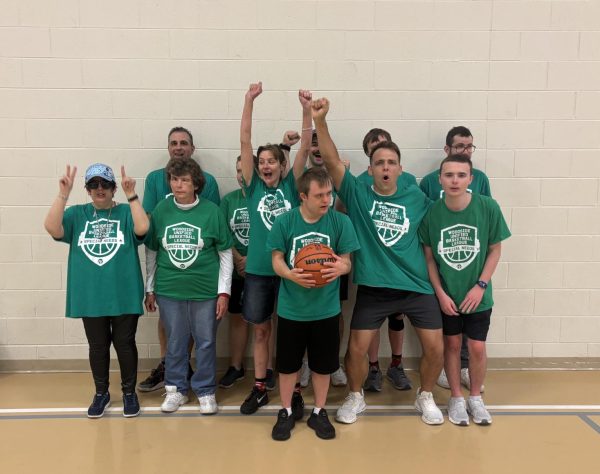How OU students can celebrate Native American Heritage Month
Photo courtesy of Ashleigh Dubie
Left to right: Andrea Knutson, Megan Peiser and Ashleigh Dubie doing research while crafting OU’s Land Acknowledgement Statement.
Oakland University students and staff benefit from stolen land. In May of 2021, OU adopted a land acknowledgment statement to recognize the campus stands on Anishinaabe land — though several behind the acknowledgment recommend students do more to honor Native history this November.
How can students and faculty honor Native American history and culture?
Assistant Professor of English Megan Peiser — of the Choctaw Nation of Oklahoma — said students must learn about the land they live on because “our American education system does not do a very good job of educating us about being treaty people.”
One source she recommended students read is the 1807 Treaty of Detroit, which forced Native tribes to sell much of southeastern Michigan to the United States for about 2 cents per acre — for a total of about $10,000.
Two cents in 1807 equals 51 cents today. According to the U.S. Department of Agriculture, one acre of Michigan farmland today costs $5,850 on average.
Similar relocation efforts continued throughout the 20th century and forced Native families into unemployment, low-paying jobs and discrimination, according to the National Archives and Records Administration.
“Detroit is one of the biggest urban Indigenous populations in the country because of the 1960s relocation program that bussed Native Americans away from reservations to cities and tried to assimilate us into white culture,” Peiser said. “So people like myself — I am a citizen of the Choctaw Nation of Oklahoma — these are not my ancestral lands, these are not my removal lands, but I am here and I am indigenous.”
Native families are still impacted by these programs today. One example of this impact is their having worse health outcomes than white families as a result of living in areas exposed to high levels of pollution, according to Assistant Professor of Public Health Mozhgon Rajaee.
These lasting effects are why Peiser and Associate Professor of English Andrea Knutson said OU students also need to learn about Native people, like the Anishinaabe, as people of the present.
“Native people are here — they’re CEOs, they’re in our classrooms, they’re running businesses,” Knutson said. “They’re everywhere. The problem is we have successfully relegated them to the past.”
Take boarding schools for example. These institutions kept many children hundreds of miles away from their parents, where some stayed for years at a time. Children were not allowed to speak their native language, were forced to attend church, experienced mental and physical abuse and often died at these schools.
In Michigan, one of these boarding schools remained open until 1983.
“Every Native person you meet today is either a boarding school survivor or the child or grandchild of a boarding school survivor,” Peiser said.
Rajaee said learning about Native people’s experiences is a way to become a better member of society — but it requires intentionality. This includes having a staff that starts with education.
“Students can demand that we have classes on Native American History on campus,” Peiser said. “When students demand things, administrators sit up and listen. [Students] don’t have to just take the education that’s given to [them]. Why aren’t we all required to take a class on Michigan Indigenous history and culture?”
By learning a fuller history, Knutson said that students and faculty will push back against centuries of violence and harm.
How can students and faculty uphold OU’s land acknowledgement?
While OU’s land acknowledgement was an important way to recognize the land on which OU’s campus stands, Rajaee, Knutson and Peiser believe upholding it takes more than writing words on a page. Rajaee recommended students find ways to support initiatives that lift Indigenous voices.
One way Peiser, Knutson and Rajaee suggest students do this is by attending events OU will host to celebrate Native American Heritage Month during November. Each event is open to the public and is free of charge.
There will be five events including four Native speakers scheduled from Nov. 4 through Nov. 21, and a continuous screening of “Gather” in the Oakland Center from 4-10 p.m. on Nov. 3. The speakers include Anishinaabe plant medicine teacher Joe Pitawanakwat, film scholar Dr. Gary Rhodes, public health graduate research assistant Tara Maudrie and Eric Hemenway, the director of repatriation, archives and records for the Little Traverse Bay Bands of Odawa Indian.
Knutson mentioned another way students can participate is by becoming involved in Native communities. One way to get involved is by emailing Megan Peiser ([email protected]) to reestablish OU’s Native student group.
“[I want] Native students at OU to email me so that we can reestablish OU’s Native American and Indigenous student group,” Peiser said. “There is funds for [a] student group. I want us to have a safe place to be together, to use those funds to support Native students at OU and hopefully one day for that student group to work with allies on campus, as well.”
The student group would be able to use funds for anything. A few ideas Peiser suggested were offering people trips to their ancestral homelands, bringing guest speakers to campus, paying for students to take classes in their native language and paying for regalia.
Peiser also said OU can uphold their acknowledgment by creating an endowment for the land the university designated for Native American educational, community and ceremonial use, noting that many corporations have started adding an annual endowment to Indigenous communities. The endowment money would be used to buy equipment essential for land practices, offering many urban Natives the chance to perform land practices for the first time.
In the absence of an endowment, students and faculty can find Native causes to donate to.
“If you have funds, you want to donate money to causes that are important and necessary for Native communities — causes such as language revitalization programs and funds for the recovery from the legacy of boarding schools,” Knutson said. “Giving money to an organization that heals trauma from boarding schools is really important for language revitalization.”
Through learning and action, Peiser, Rajaee and Knutson believe OU students and faculty can honor Native American Heritage Month and help create a better society.
“That’s how we’re going to build a different future,” Peiser said, “an Indigenous future where there will be a future for everyone.”









